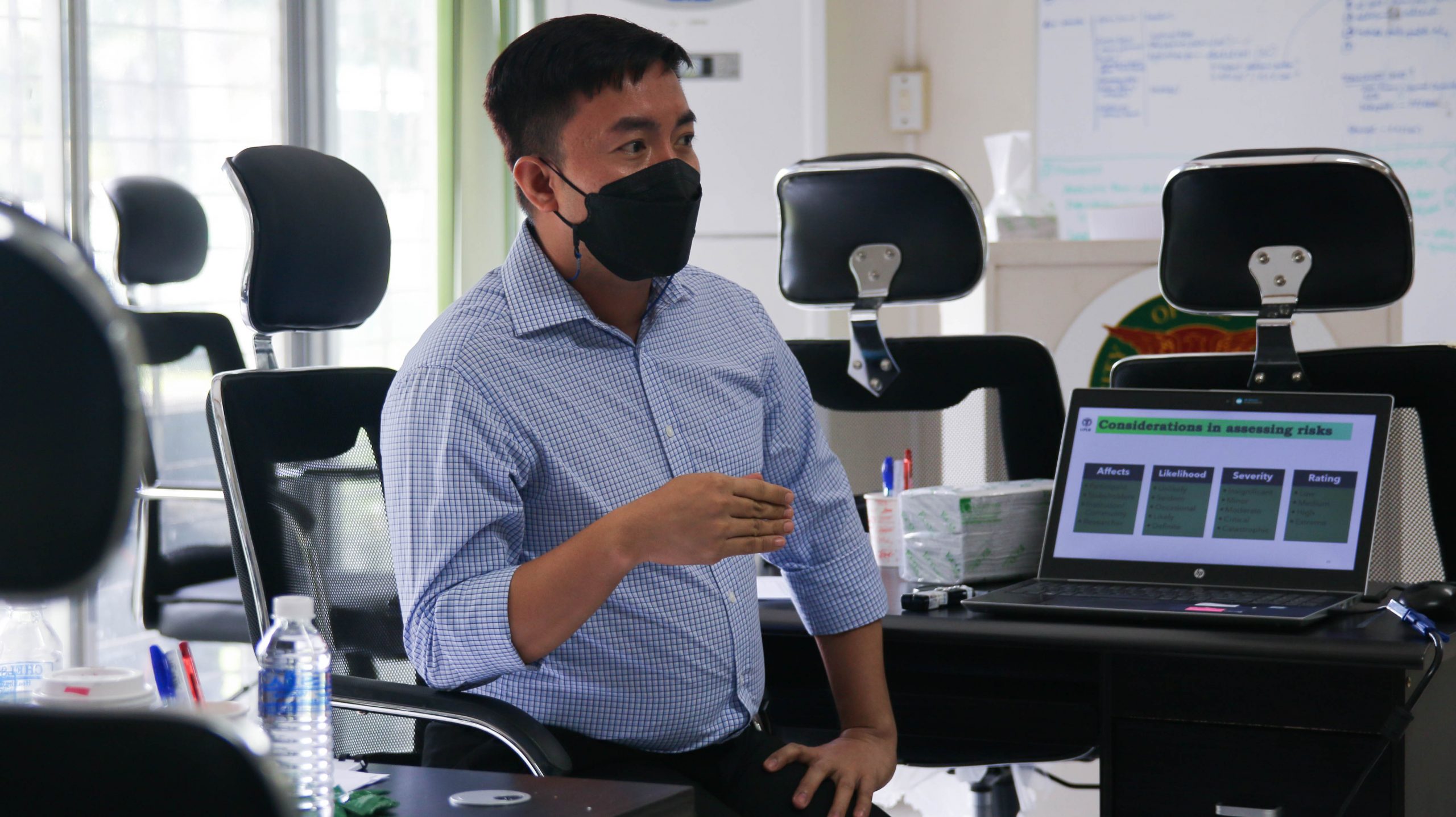
The UPLB Research Ethics Board (REB) held a full-day workshop on the university’s research ethics review process on May 23 at the Office of the Vice Chancellor for Research and Extension (OVCRE) Annex building.
Faculty members and social scientists from various UPLB colleges and units gathered for the workshop to review the research ethics review process and procedures in the university and ensure its adherence to international and national standards.
In a short video message, Vice Chancellor for Research and Extension Nathaniel C. Bantayan welcomed the participants and explained the urgent need for the activity.
“It is important for us to promote and uphold accountability, knowledge, and truth, and to minimize error in our conduct of research for us to build the public’s support, trust, and confidence in our R&E initiatives,” he said.
In her opening remarks, UPLB REB Chair Ma. Carmina C. Manuel briefly went over the challenges that the committee experienced in the past years, adding that the day’s activities were about moving forward, enhancing the efficiency of the ethics board, and addressing evolving challenges along the way.
Following the messages was a detailed review of research protocols from The Research Ethics Application Database (TREAD), particularly on the attention to risk assessment, alignment of the featured protocols to research ethics principles, and good practices that UPLB can adopt and modify to fit local contexts.
Assoc. Prof. of Sociology Mark Oliver S. Llangco provided an overview of the workshop and led the group discussions on the TREAD protocols. He also emphasized the need for a standardized matrix for risk assessment to guide researchers and reviewers in evaluating potential risks associated with the studies they are conducting and/or reviewing.
Points that emerged from the plenary sessions included participant safety and security in the age of digital media, as well as the development of management and storage systems and policies for collected data (e.g., interview recordings; records of participants’ personal information).
The challenges of data migration were also highlighted. Amidst the increasing need for virtual workspace and remote learning tools, Google has recently announced that it will be downgrading the storage capacity of academic email accounts worldwide starting July 1, 2022.
Additionally, the review of the selected TREAD protocols reminded the participants that sensitivity of study designs to literacy, culture, gender, and other factors concerning the individual and community must be considered in the assessment of research proposals sent to the committee for review.
The role of the adviser, funding agencies, and research institutions was also determined as an important factor in the efficient facilitation of research ethics review process and in the protection of both the participant and the researcher.
Following the workshop, the UPLB REB will be making revisions to its standard operating procedures. It will also be updating its application, confidentiality, and non-disclosure agreement forms based on agreements made during its May 23 deliberations.
Assoc. Prof. and Graduate School (GS) Secretary Pamela Custodio officially closed the event by thanking the workshop participants and support staff for a productive session. She also urged everyone not to be discouraged by the amount of work that lies ahead.
“Let’s popularize the ethics review. Let’s not think of it as a burden but an integral part of the research process. There’s a lot to do, but we will be doing it together,” said Dr. Custodio.
The workshop was organized in anticipation of the Philippine Health Research Ethics Board’s publication of the 2022 National Ethical Guidelines for Research Involving Human Participants. It was conducted three months before the UPLB REB is scheduled to review its first set of applications from the UPLB GS in August 2022.
The UPLB REB was formed by virtue of the Office of the Chancellor (OC) Administrative Order No. 23 Series of 2022. Its primary purpose is to assess and ensure the technical and ethical soundness of research involving human participants conducted by UPLB constituents, and to disseminate research ethics review-related information to the UPLB community. Currently, the REB is processing their accreditation to officially become a legitimate ethics review committee for UPLB research.
